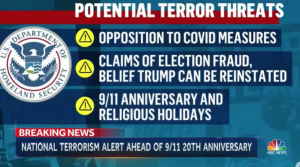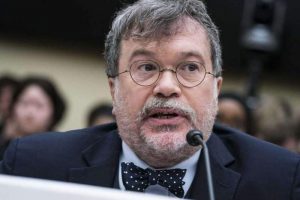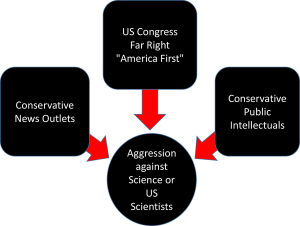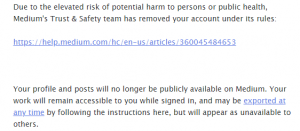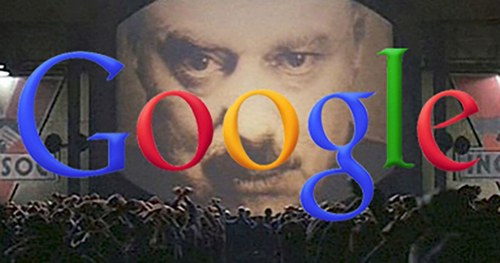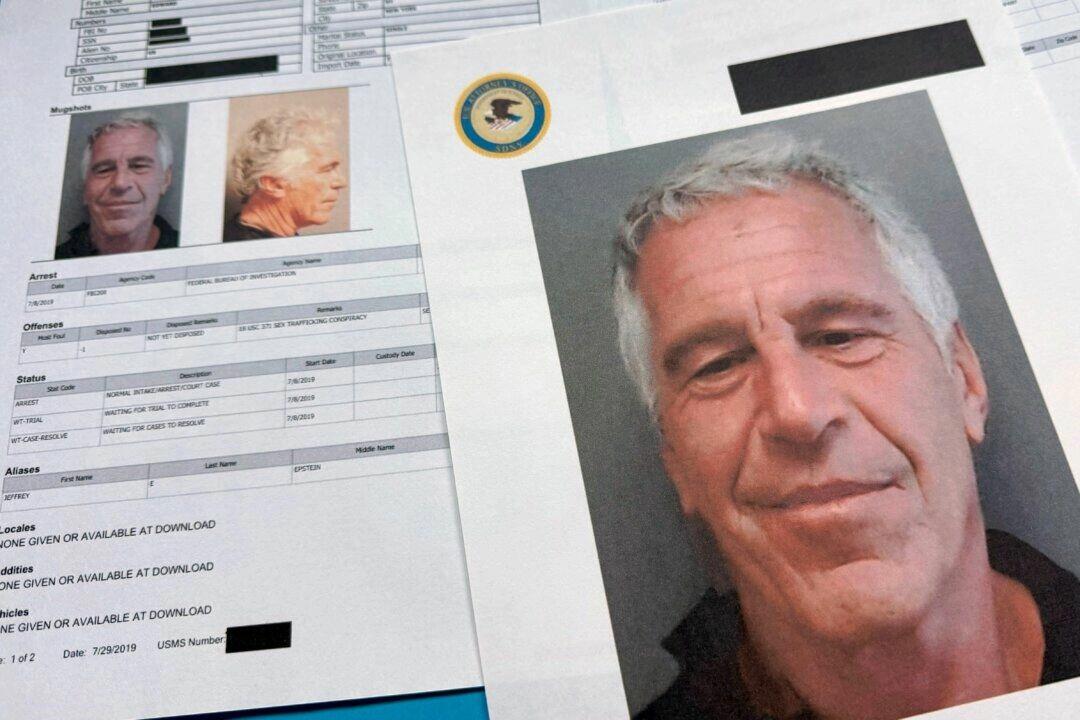Quite a clear understanding...
Authored by Philipp Bagus via The Mises Institute,
Pressure on the unvaccinated grows. While the vaccinated in some countries are getting back some of their freedoms taken away by the covid interventions, the unvaccinated are not so well off. They are being targeted for discrimination. Access to public spaces and traveling is being made more difficult for them. In some countries there is even mandatory vaccination for some professions.
But why is the vaccination campaign so important to governments that they are increasing the pressure to such an extent? And who has an interest in the global vaccination campaign?
To answer these questions, it is necessary to analyze the prevalent vaccination narrative and ask who benefits from it.
In doing so, the alliance of interests between the state, the media, the pharmaceutical industry, and supranational institutions must be addressed.
Let us start with the pharmaceutical industry.
It has an obvious economic interest in the vaccination campaign. It makes enormous profits from widespread vaccination.
What about the state?
In the covid-19 crisis, politicians have systematically amplified fear and hysteria. This was no accident and is unsurprising, for the state builds its raison d'être on the argument that it protects the population from internal and external dangers. The state is built upon fear. The narrative is that without the help of the state, the citizen would be defenseless against hunger, poverty, accidents, war, terrorism, disease, natural disasters, and pandemics. It is, therefore, in the state's interest to instill fear of possible dangers, which it then pretends to resolve, expanding its power in the process. A relatively recent example is the restriction of civil liberties in the US in response to the threat of terrorism after the 9-11 attacks and the second Iraq war. Similarly, it was in the interest of governments to purposefully instill fear and portray covid-19 as a unique killer virus in order to expand state power to an extent unknown in peacetime at the expense of citizens' fundamental rights.
When the corona crisis started and not much was known about the virus's potential danger politicians were faced with an asymmetric payoff. If politicians underestimate a danger and do not react, they are held responsible for the underestimation. They lose elections and power. Especially if they can be blamed for deaths. Photos of mass burials aside, the consequences of underestimating danger and failing to act are politically fatal. In contrast, overestimating the danger and taking decisive action are politically much more attractive.
If it really is an unprecedented threat, politicians are celebrated for their tough measures such as lockdowns. And politicians can always argue that without their decisive action, there would indeed have been a disaster. If the measures ultimately turn out to have been exaggerated because the hazard was not so great after all, the possible negative consequences of the measures are not as directly associated with the politicians as the photos of mass burials, because these consequences are more indirect and long term. The indirect and long-term health costs of lockdowns include suicides, depression, alcoholism, stress-related illnesses, earlier deaths from canceled surgeries and screenings, and a generally lower standard of living. However, these costs are not directly associated with the drastic interventions and blamed on the policy. Many of these consequences will occur after the next elections or even later and are not visible. For instance, we cannot observe to what extent a higher standard of living would have increased life expectancy. And if someone dies six years from now from alcoholism or depression developed in the wake of lockdowns, most people probably will not make the lockdown politicians responsible, and if they do, these politicians will possibly already be out of office. Thus, it is in the interest of politicians to overestimate a threat and overreact.
In order to justify and defend the harsh measures such as lockdowns that are so attractive to politicians, it is necessary to stir up fear. When politicians stoked fear and hysteria during the covid-19 crisis, implementing highly restrictive measures such as lockdowns, the damage to the economy and social fabric was immense. Yet a society cannot be cannot be locked down forever, as the costs keep rising. At some point, it must exit lockdown and return to some normality. However, how can one at the same time stir up fear of the threat of a killer virus and return to normalcy?
The way out is vaccination.
With to the vaccination campaign the state can stage itself as the savior from the great danger. The state organizes vaccination for its citizens and gives the vaccinations to the citizens for "free." Without this "vaccination rescue" and in a permanent lockdown, the negative economic and social consequences of the restrictions on civil rights would be so great that resentment among the population would continue to grow and ultimately unrest would threaten. So, sooner or later, the lockdown must be ended. If, however, the state authorities were to back out of the lockdowns and restrictions without further explanation and imply that the danger was not so great after all and that the restrictions were an exaggeration and a mistake, they would lose a great deal of support and trust among the population. Consequently, from a governmental perspective, a good and face-saving "exit scenario" from the most severe restrictions is needed, and the vaccination campaign provides it.
Through state-provided vaccination, the state can continue to hold on to the narrative of the great threat and still get out of the lockdown. At the same time, it can pass itself off as a savior that is making somewhat more normality possibly through vaccination. To do this, it is necessary that as large a proportion of the population as possible also get vaccinated, because if only a fraction of the population gets vaccinated, the vaccination campaign cannot be sold as a necessary step toward opening up. Thus, it is in the state's interest to get a major part of the population vaccinated.
If this strategy works, the state will have set a precedent, expanded its power, and also made citizens more dependent. Citizens will believe that the state has rescued them from a mortal predicament and that they will need its help in the future. In return, they will be willing to give up some of their liberties permanently. The announcement that a state-organized annual vaccination booster is needed will perpetuate the citizens' dependence.
The mass media have fallen in line and actively support the vaccination narrative.
The state and mass media are closely linked. Framing by the leading media and targeting the population have a long tradition. Already in 1928 Edward Bernays advocated the intelligent manipulation of the masses in his classic book Propaganda. In modern states, the mass media help to construct popular approval for political measures such as in the case of covid-19.
The mass media's support of the state is due to several reasons. Some media are directly owned by the state, others are highly regulated or require state licenses. Furthermore, media houses are staffed with graduates from state educational institutions. In addition, especially in times of crisis, a good connection to the government offers advantages and privileged access to information. The willingness to carry the state's fear narrative also comes from the fact that negative news and the exaggeration of dangers bring attention.
In the corona crisis, the one-sided media coverage that proliferated through social media and muted critical voices contributed to fear and panic and created great psychological stress among the population. However, it is not only negative news that is attractive to the media; the narrative of the state rescuing the population from a major crisis also sells well. Thus, the vaccination narrative plays into the hands of the mass media.
In addition to nation-states, the media, and pharmaceutical companies, supranational organizations also have an interest in ensuring that the world's population is vaccinated.
Supranational organizations are actively pursuing an agenda in which global vaccination campaigns play an important role. These organizations include the World Economic Forum (WEF), the United Nations (UN), the EU, the International Monetary Fund (IMF), and the World Health Organization (WHO), which are closely interconnected.
Some of these organizations have set as their goal a great reset, or a great transformation. In the areas of pandemic and climate protection, gender, migration, and the financial system, these organizations want to find coordinated answers for the benefit of all people worldwide. They emphasize shared responsibility and global solidarity. The central control of vaccination, climate change, and financial and migration flows bears the hallmarks of a new world order. For example, the theme of the 2019 annual meeting of the WEF was "Globalization 4.0: Shaping a New Global Architecture in the Age of the Fourth Industrial Revolution." Another example of supranational planning is the UN's "Global Compact for Migration." At the national level, these radical ideas are supported, as shown by the German Advisory Council on Global Change's Welt im Wandel – Gesellschaftsvertrag für eine Große Transformation (World in transition: Social contract for a great transformation) policy paper.
Raymond Unger (2021, pp. 84–89) sees this drive for supranational planning as part of a culture war envisioned by Antonio Gramsci and Herbert Marcuse. A global management of opinion and outrage is combined with scenes of fear and horror, especially in the fields of climate change and corona, to establish a new socialist world order. In fact, the WHO, the IMF, and the UN are led by former communists. The WEF is financed by global companies, including the pharmaceutical industry and the big tech companies. The WEF, for its part, significantly finances the UN's 2030 Agenda. The WHO is also significantly funded by pharmaceutical companies and the Bill and Melinda Gates Foundation, which spearheads global vaccination campaigns. During the covid-19 crisis, the pharmaceutical industry also exerted its influence on the WHO. And the IMF only aided nation-states if they complied with WHO recommendations.
These interconnected supranational organizations see the covid-19 crisis as an opportunity to advance their agendas. The UN policy paper Shared Responsibility, Global Solidarity: Responding to the Socio-economic Impacts of COVID-19 views covid-19 as a turning point for modern society. The intention is to seize the opportunity and act in a globally coordinated manner. The major tech companies support these agendas. They are also members of the WEF and censored disagreeable information related to covid-19 on their platforms (Twitter, YouTube, and Facebook), just like the mass media. Videos critical of vaccination are particularly quickly deleted on YouTube.
The title of a keynote speech by IMF director Kristalina Georgieva, "From Great Lockdown to Great Transformation" also underscores the idea that supranational organizations want to use the corona crisis for their agendas. Klaus Schwab, founder of the WEF, argues that the covid-19 crisis represents a "rare opportunity" to "lay new foundations for our economic and social systems." In COVID-19: The Great Reset, coauthored with Thierry Malleret, Schwab speaks of a defining moment and claims a new world will emerge. According to Schwab, it is time for a fundamental reform of capitalism.
Thus, the globally coordinated vaccination program can be interpreted as a building block in a supranational strategy of a great reset.
Global vaccination structures are being established that can be used for subsequent global vaccination campaigns. From the perspective of advocates of a great reset, globally coordinated covid-19 vaccination underscores the need for global structures and organizations that can then be used for other global purposes, such as effectively combating "climate change" and pushing for a great reset. In short, the state, the media, the pharmaceutical industry, and supranational organizations are closely intertwined and have a common interest in the vaccination narrative.
From this perspective, the mounting pressure on the vaccine-free is unsurprising.




